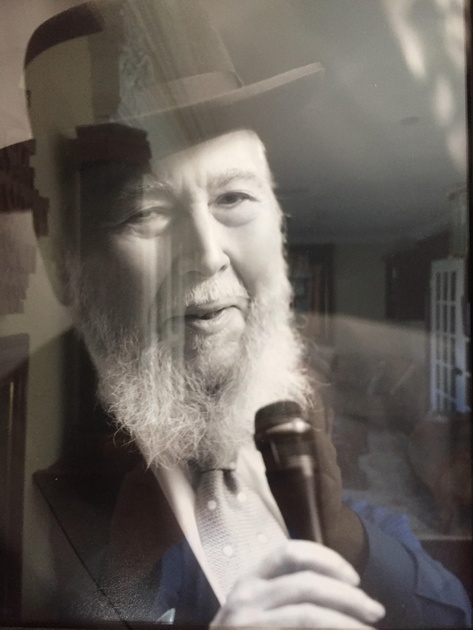
Shabbos
אַבָּיֵי אַשְׁכְּחֵיהּ לֵיהּ לְרַבָּה דְּקָא מְשַׁפְשֵׁף לֵיהּ לִבְרֵיהּ אַגַּבָּא דְחַמְרָא. אֲמַר לֵיהּ: קָא מִשְׁתַּמֵּשׁ מָר בְּבַעֲלֵי חַיִּים! אֲמַר לֵיהּ: צְדָדִין הֵן, וּצְדָדִין לָא גְּזַרוּ בְּהוּ רַבָּנַן. מְנָא תֵּימְרָא — דִּתְנַן: מַתִּיר חֲבָלִים וְהַשַּׂקִּין נוֹפְלִין. מַאי לָאו — בְּחֶבֶר גְּווֹלְקֵי, דְּהָווּ לְהוּ צְדָדִין וּצְדָדִין, לָא גְזַרוּ בְּהוּ רַבָּנַן.
The Gemara relates: Abaye found Rabba sliding his son on the back of a donkey on Shabbat to entertain him. He said to him: The Master is making use of living creatures on Shabbat, and the Sages prohibited doing so. Rabba said to him: I placed my son on the side of the donkey, and as they are sides, the Sages did not issue a decree prohibiting making use of them. From where do you say that this is so? As we learned in the mishna: One may untie the ropes and the bags fall on their own. What, is it not referring to a case where one attached the bags by means of guvalaki, where the bags are strapped to the animal and the only way to loosen them involves leaning against the sides of animal in order to unstrap them? That is because it is a case of making use of the sides, and the Sages did not issue a decree prohibiting making use of an animal’s sides.
for Video Shiur click here to listen: Psychology of the DAF Shabbos 154
While we are discussing Rabbah and his children, it seems he was a doting father and gets quoted regarding other parental interactions. This is especially interesting in light of the fact that Gemara Bava Metzia 86a testifies that Rava never stopped learning So much so that the angel of death had difficulty grabbing him.
יומא עח, ב
והא מותרין לכתחלה קתני אלא הנך דלאו רביתייהו גזרו בהו רבנן הנך דרביתייהו הוא לא גזרו בהו רבנן דאמר אביי אמרה לי אם רביתיה דינוקא מיא חמימי ומשחא גדל פורתא ביעתא בכותחא גדל פורתא תבורי מאני כי הא דרבה זבין להו מאני גזיזי דפחרא לבניה ומתברי להו
The Gemara asks: But the mishna is teaching that they are permitted to wear shoes ab initio. If so, it is permitted for an adult to perform these acts for a child even on the day of Yom Kippur, and the observer will not think that the adult has done anything wrong. Rather, we must explain the mishna as follows: The Sages decreed against performing those actions that are not necessary for the child’s growth, but the Sages did not decree against performing those actions that are necessary for the child’s growth. As Abaye said: My mother told me: A child’s growth requires hot water and oil for smearing. When he grows a little, he must eat egg with kutaḥa, a pickled dip made with milk. When he grows a little more, he must have vessels to break, since he will enjoy breaking them. This is like Rabba who bought cracked ceramic vessels for his children, and they broke them for their enjoyment.
רש״י שם
תבורי מאני - להפקיר לו כלים לשבר ולמלאות תאותו:
Two powerful points emerge: (1) What normally would be considered improper, indulgent and destructive behavior for most people and children, at a certain developmental window should be indulged. (2) Rabbah, though a renowned masmid, who didn’t stop learning somehow spent time with his children and also was attuned to their needs in a remarkable manner.
for Video Shiur click here to listen: Psychology of the DAF Shabbos 154
Translations Courtesy of Sefaria
Photo Abba Mari Rav Chaim Feuerman, Ed.D. ZT"L Leiyluy Nishmaso

 Previous
Previous
